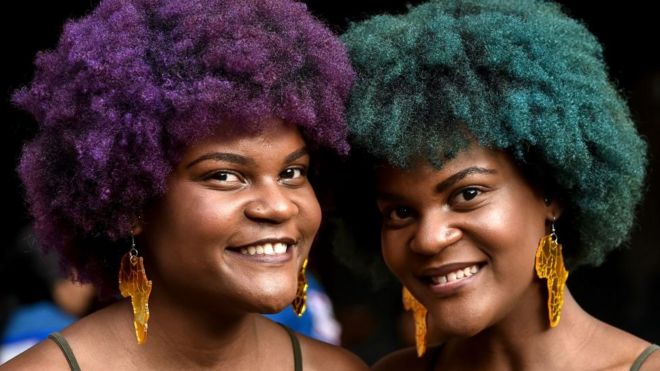Mini-skirts and morals in Uganda

A new crackdown on what civil
servants can wear in Uganda has reignited a fierce debate about
morality, clothes and women's rights in the country.
The new directive brings new definitions to "dressing decently".Women are not allowed to:
- Wear a skirt or dress that is above the knees
- Wear sleeveless, transparent blouses and dresses
- Show cleavage, navel, knees and back
- Have bright-coloured hair (natural hair, braids or hair extensions)
- Have nails longer than 3cms (1.5in), or have bright or multi-coloured nail polish
- Wear neat trousers, long-sleeved shirts, jacket and a tie
- Not wear tight fitting trousers
- Not have open shoes, except on health grounds/recommendation.
- Have well-groomed, short hair

"Each profession has got its code of conduct.
"When you're at work, you have to dress up the way you're expected.
"I have no problem with it."
However, Rita Achiro, head of the Uganda Women's Network, describes the order as a diversionary move.
"How does dress code affect service delivery?" she asks.
"What Ugandans need are more teachers and nurses.
"We have high maternal mortality, children in schools without teachers.
"I don't see how the banning of mini-skirts and bright-coloured shirts is going to fix that."
The debate on hemlines and neck-ties has gone beyond the formal setting of the public service.
In May, photos of two Makerere University students were shared widely on Facebook, with many Ugandans criticising them for wearing revealing skirts to a party.
Rebecca Naddamba, one of the two young women in the photos, was a final-year education student. She was dressed in a two-piece red outfit, with a long skirt made up of strips of cloth, showing her legs.
"People have asked me whether I am sane. Some said I shouldn't be allowed to become a teacher," she says.
The university wrote to her, citing "misconduct at a university function" and asking her to explain why she should not face disciplinary action.
Ms Nadamba thinks dressing should simply be about appropriateness.
"I am looking forward to becoming a teacher. I will tell my students that there is a difference between dressing for a classroom, a place of work and a party."
Her case raised questions on whether Uganda, as a society, spends too much time and effort nit-picking what people should and should not wear.



Comments
Post a Comment